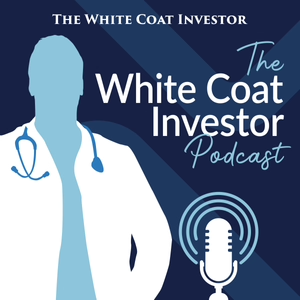
Johan Hedevåg: Ex-Director of Product at Kry, Founding Partner at 4scale Ventures, Professional Poker Player
06/02/23 • 65 min
Things we talked about
- Why Johan first worked as a doctor but then left the hospital because working as a doctor doesn’t scale and it’s hard to have a larger impact
- Why it’s hard to change a hospital from inside
- His first job (scholarship) after leaving the hospital which was about identifying problems in hospitals and how to solve them
- Building his first own Healthtech company producting wearable sensors for patients in hospitals
- Being a professional poker player, doing that during medical school, and what made him stop
- How the knowledge of poker is useful in other aspects of life
- Why he didn’t aim for good “grades” in exams
- What a product manager actually does and how to learn it
- Why many doctors underestimate their usefulness
- “The rise and fall of Europe’s largest telemedicine provider”
- Working at Kry while it grew from 60 to 1.200 people
- In which areas you could build successful Healthcare companies now
- What he’s doing at his own company, 4scale, now
- The pros and cons of venture capital (VC) funding for startups
Links As Mentioned In The Podcast
- Johan on LinkedIn.
- Johan on Substack where he publishes his writing: Big world - Small world and Mini mental models.
- 4scale Ventures: Johan’s company which he co-founded. They support companies to reach their ambitions on growth efficiency and leadership. They also invest in companies and offer consulting and coaching.
- womanly: The female health ecommerce startup which Johan is currently building.
- Kry: Telemedicine company where Johan was the director of product. Kry is available in Sweden, Germany, Norway, France and the UK (slight correction here as I didn’t mention the UK in the podcast).
Things we talked about
- Why Johan first worked as a doctor but then left the hospital because working as a doctor doesn’t scale and it’s hard to have a larger impact
- Why it’s hard to change a hospital from inside
- His first job (scholarship) after leaving the hospital which was about identifying problems in hospitals and how to solve them
- Building his first own Healthtech company producting wearable sensors for patients in hospitals
- Being a professional poker player, doing that during medical school, and what made him stop
- How the knowledge of poker is useful in other aspects of life
- Why he didn’t aim for good “grades” in exams
- What a product manager actually does and how to learn it
- Why many doctors underestimate their usefulness
- “The rise and fall of Europe’s largest telemedicine provider”
- Working at Kry while it grew from 60 to 1.200 people
- In which areas you could build successful Healthcare companies now
- What he’s doing at his own company, 4scale, now
- The pros and cons of venture capital (VC) funding for startups
Links As Mentioned In The Podcast
- Johan on LinkedIn.
- Johan on Substack where he publishes his writing: Big world - Small world and Mini mental models.
- 4scale Ventures: Johan’s company which he co-founded. They support companies to reach their ambitions on growth efficiency and leadership. They also invest in companies and offer consulting and coaching.
- womanly: The female health ecommerce startup which Johan is currently building.
- Kry: Telemedicine company where Johan was the director of product. Kry is available in Sweden, Germany, Norway, France and the UK (slight correction here as I didn’t mention the UK in the podcast).
Previous Episode

Fabienne Cotte: Managing Clinical Trials While Surfing in Asia
Things we talked about
- How she got her first job in digital health already during her studies
- Why she decided to continue working in digital health upon graduating versus working in a hospital
- How it’s like to work from Bali: Surfing, productivity, time zone differences, coworking spaces
- Why working in a different time zone makes her more productive
- An example of a study they did in Tanzania which compared mid-level healthcare professionals using software versus physicians without software (with very interesting results)
- How a typical work day looks like for her
- How she had to start managing people a few months in to her job
- Why she’s considering going back to work in the hospital to work as a physician in Dermatology some time in the future
Links As Mentioned In The Podcast
- Fabienne on LinkedIn.
- Ada Health: Where Fabienne currently works. A healthcare company in Berlin developing a symptom checker. Note that Matthew Fenech, a prior guest on this podcast, also worked at Ada Health, and I also worked there as Ada was my first consulting customer back in 2020.
Next Episode

Stephen Gilbert: Professor for Regulatory Science
Stephen’s Biography
Stephen Gilbert is a veterinarian and professor for regulatory science at the University Hospital Dresden. Before that, he worked as a regulatory affairs manager specializing in clinical evaluation at Biotronik in Berlin, a large and established medical device manufacturer, and then for at Ada Health, also in Berlin, as director of clinical studies and clinical evaluation. Initially, after graduating as a veterinarian in 2001, he worked as a veterinarian and veterinary surgeon for around 10 years in the UK. In addition to studying veterinary sciences a the University of Glasgow, he did a Master’s Degree in Biomathematics, Bioinformatics and Computational Biology at the University of Leeds, and followed that up with a PhD in computational biology.
Things we talked about
- Why he stopped working as a vet: “List-based” work vs. “project-based” work
- Learning self-sufficiency as a vet while having to perform all sorts of operations after graduating
- How he was involved in handling the food and mouth disease outbreak and how that relates to project management
- Transitioning into “wet lab” scientific research and simulations
- How he joined Biotronik, a medical device manufacturer based in Berlin, and worked there to acquire the first-ever CE certificate for a medical device under the new Medical Device Regulation
- The benefits of doing a Master’s degree and/or PhD as a doctor and which sort of program / research area to look for
- We both talked about the German system of doing a “Dr. med” research degree
- What does a Professor of Regulatory Science do? And what is Regulatory Affairs?
- The “implant files” which led to the uncovering of implants which caused harm in patients and their effect on subsequent medical device regulation
- Are we over-regulating medical devices? Do we even have any data to answer that question?
- AI in Healthcare: Chances and risks of ChatGPT and large language models (LLMs)
- LLM medical software currently on the market, their features and considerations whether they are medical devices
If you like this episode you’ll love
Episode Comments
Generate a badge
Get a badge for your website that links back to this episode
<a href="https://goodpods.com/podcasts/medical-misfits-253143/johan-hedev%c3%a5g-ex-director-of-product-at-kry-founding-partner-at-4scale-30432255"> <img src="https://storage.googleapis.com/goodpods-images-bucket/badges/generic-badge-1.svg" alt="listen to johan hedevåg: ex-director of product at kry, founding partner at 4scale ventures, professional poker player on goodpods" style="width: 225px" /> </a>
Copy




